I wouldn’t have enough space here to fit all that can be said about Ephesus.
But if you’re interested in the ancient world and visiting what’s left of it during your cultural travel, this early city is one of the most amazing places in antiquity.
I’d heard about Ephesus in passing when somebody mentioned it relating to the Bible when I was little, but to be quite honest with you I never knew whether Ephesus was a real place or not.

Photo by Djenan Kozic: www.djenankozic.com
Well, it is a very real place with a remarkable story and many interesting facts to share!
So I’m going to make this a two part series. In this first part, I’ll cover the historical background and in the second part, I’ll focus on visiting it today in modern Turkey.
Update: It wasn’t possible to fit all the interesting information in two posts, so this is actually a three part series. See the end for links.
What is Ephesus?
Ephesus is an ancient city located in Anatolia (Asia Minor) which today is two thirds of the Asian part of Turkey.
It’s surrounded on the north by the Black Sea, on the east by Georgia, Armenia and Mesopotamia, on the south by the Mediterranean Sea and on the west by the Aegean Sea.
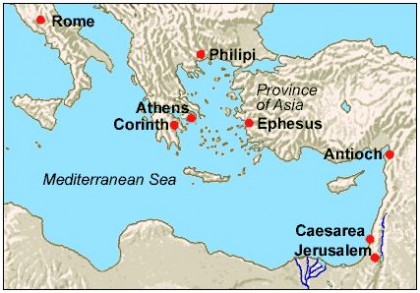
Map of Asia Minor and Greece. Source: www.jesuswalk.com
The origins of the city can be traced back to the Neolithic Age, around 6000 BC, but the foundation per se is thought to have happened during the 10th century.
It was a Greek city, part of the Ionian League (A confederation of twelve Greek cities), then a Roman city, later Byzantine, with some invasions along the way by Persians and other cultures.
Why is Ephesus important?
Well, for the purposes of this article I’ll say Ephesus is very famous for holding the Temple of Artemis, one of the Seven Wonders of the Ancient World.
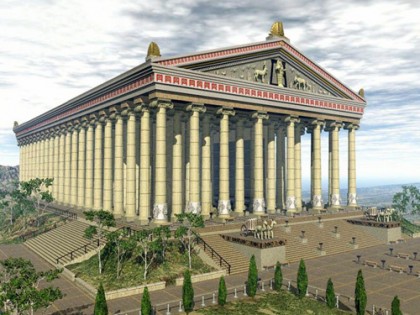
Temple of Artemis reconstruction. Photo: www.welcometohosanna.com
Secondly, it holds some masterpieces of both Greek and Roman architecture, such as the Theater, the Library of Celsus and the Odeon.
And thirdly, Ephesus was substantial for the Christian religion as a historic site where Apostles Paul and John preached and as the last place where Virgin Mary lived.
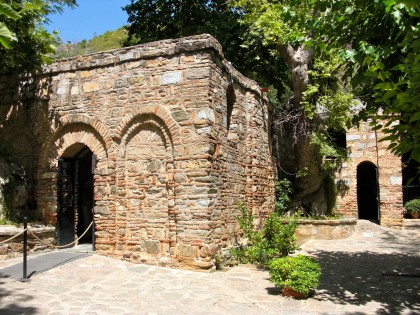
House of the Virgin Mary. Photo: tacomatraveler.blogspot.com
Ephesus has been in the middle of some pretty significant events throughout history and there have been some very noteworthy people who walked its streets.
Visiting it today is going back in time thousands of years, seeing the influences of the many cultures that went by it and the historic facts that occurred there.
Here’s a summary.
The beginning
Even though there’s a legend about the founding of Ephesus which attributes it to the mythical Amazons, it is also said that an Athenian prince called Androklos (son of king Kadron) founded it sometime during the 10th century.
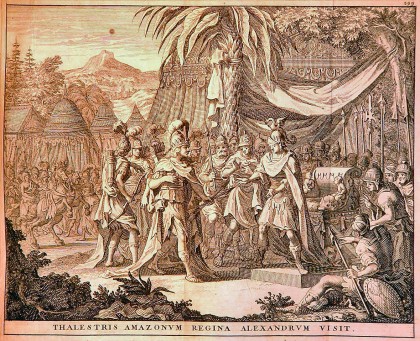
Thalestris, Queen of the Amazons, visits Alexander (1696).
Photo: www.alexanderstomb.com
It was originally a sea port but with time, the sea has moved away about 8 km west.
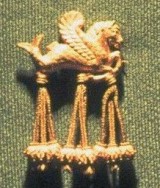
Hippocamp from Lydian Treasure in Uşak Museum, Turkey. Photo: www.sihirlitur.com
Androklos drove the then inhabitants away and united the twelve Greek cities into the Ionian League of which Ephesus was part of. He later died in the wars against the Carians.
Androklos and his dog are depicted on the Hadrian temple frieze at the site in Ephesus today.
After a series of invaders taking over the city and revolts by the people, the city was ruled by a council called the Kuretes.
In 560 BC Ephesus was conquered by the Lydians and King Croesus ruled the city into a new prosperity era. Remains of this age are scarce.
Later on the Lydians invaded Persia who in return defeated them, forcing Ephesus under Persian control.
At this stage there were many revolts and wars between Greek cities and Persia.
Alexander The Great, liberator
In 334 BC, Alexander the Great defeated the Persians in the Battle of Granicus, winning the independence of the Greek cities, including Ephesus.
When Alexander died in 323 BC, Lysimachus who was one of his generals, stepped up and became ruler.
Lysimachus moved the city to a nearby location, due to the marshes created by the river. He then built the walls around it.
After some other Greek rulers disputed control over Ephesus, the city fell under Egyptian rule from 263 to 197 BC.
In 190 BC it came under Roman rule giving it to the king of Pergamon Eumenes II.
When his grandson died with no heirs, he left it back to the Roman Republic.
The Romans
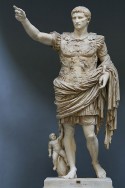
The statue of the Emperor Augustus found at Prima Porta, Rome on 20 April 1863. Photo: Andreas Wahra.
Ephesus reached a high level of prosperity under Augustus when he became Emperor in 27 BC and appointed the city the capital of the New Asia.
At this time the city grew its population to about 400.000 people making it the second most important city in the Roman Empire, after Rome.
The Temple of Artemis (Diana), the Library of Celsus and its theater which could seat 25.000 people, made it famous throughout the Empire.
Baths and aqueducts were built as well to supply the needs of the growing population.
Ephesus and the Temple of Artemis were destroyed by the Goths in 263 AD, marking the decline of the city.
The Christians
With the advent of Christianity Ephesus regained some importance.
The Apostle Paul lived in Ephesus from 52-54 AD who wrote the letter 1 Corinthians from Ephesus and the Epistle to Ephesians while he was in prison in Rome (around 62 AD).
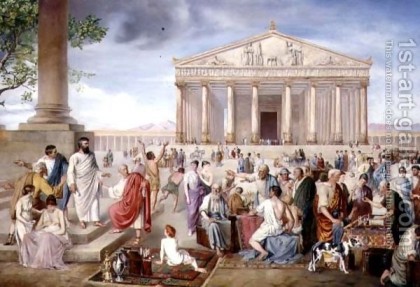
Paul in Ephesus. Photo: philleng.blogspot.com
It is also believed that Mary, mother of Jesus may have come to Ephesus with Apostle John after Jesus’ death,
The House of the Virgin Mary is believed to have been the last place Mary lived in, based on the visions of Sister Anne Catherine Emmerich.
The Turks
During the 7th and 8th centuries Ephesus was permanently under Arab attack. During the 11th century, Seljuk rulers settled in, until the city was incorporated into the Ottoman Empire in 1390.
The city was then completely abandoned during the 15th century.
Next time
In the next article I’m going to tell you how you can get to this amazing ancient site and the places that you can visit!
So meet me here to read about the interesting places on site and what they mean.
Have you been to Ephesus before?
Did you know about its intricate history?
Or perhaps you’ve never been there and now you’re intrigued by it?
Tell me in the comments field or join the conversation on Facebook!
Third article finishes the tour and goes through amazing nearby sites.



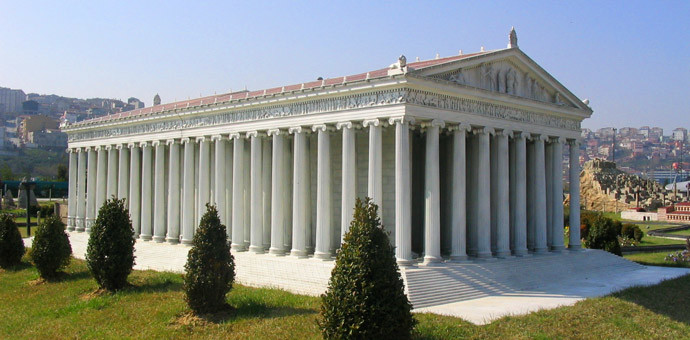
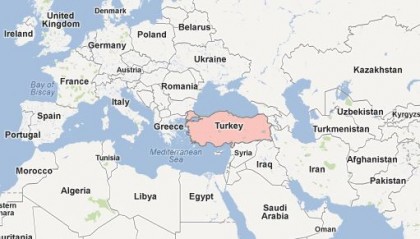
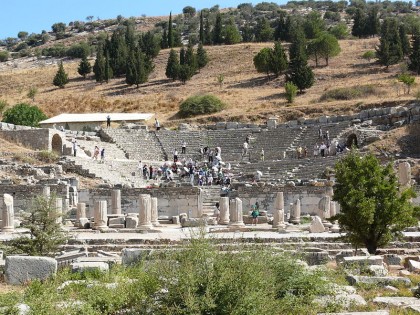
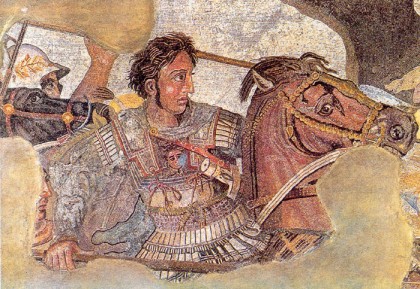
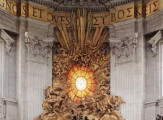


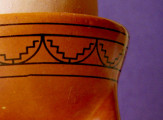
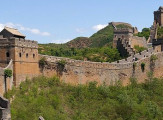

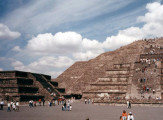
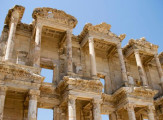



















The whole area is wonderful and I could visit time and time again. No one is still practising in those churches although there are still services at the Virgin Mary’s house. If you want to attend, there is a shuttle service laid on from Kusadasi because there is no direct transport there.
Thanks for the clarification Natalia! Awesome tip! Do you have any more tips to share about Ephesus?
Pls can I have a detail about what happened to the churches of Ephesus. are Christians still worshiping there?
Thank you for your comment! I believe they are not. Wikipedia has a good article about it: http://en.wikipedia.org/wiki/Seven_churches_of_Asia Though not the final word, it doesn’t look like the churches survived. Anybody care to weigh in?
Great post! Ephesus is such an amazing place and I’m so glad we got to go there. Thanks for all the info!
Hi, Daniel and Kelly! Thank you for your comment! What did you like most about Ephesus?